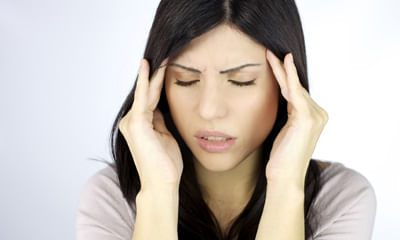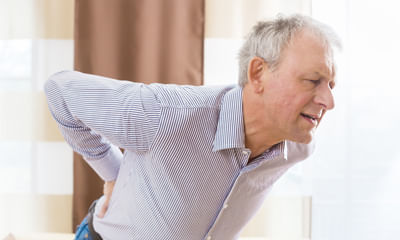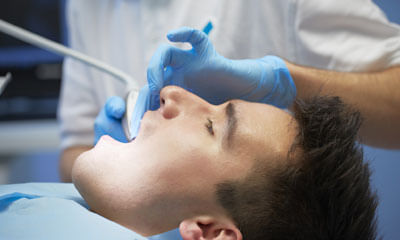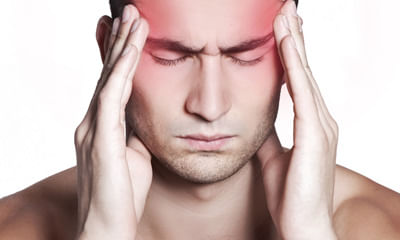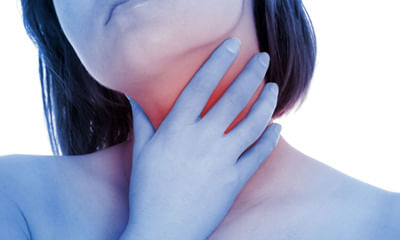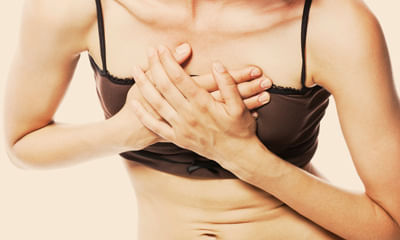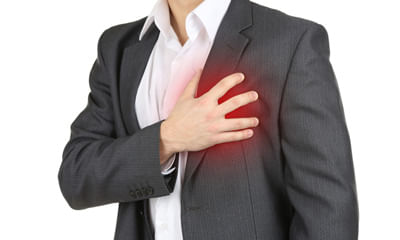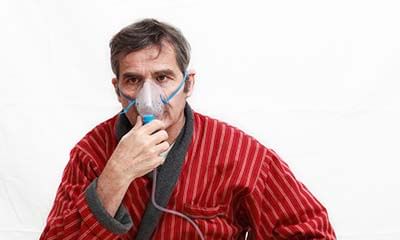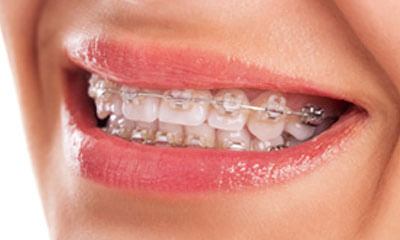Ear Pain When Yawning
Symptoms I was wearing specs from 2014 but I think I needed earlier but I was late but the glasses I wear later on from ...
Ask Free Question
Hi, greetings from your ayurveda wellness coach. I see that you are having multiple complaints including your bloating, ent and anxiety and neurological conditions. It is better to get a proper consultation and get a proper treatment done for the same. Because you need a proper counselling, diet and lifestyle modifications and best ayurveda and siddha medicines and regular follow up.
Question reposted with additional details. Dear doctor frequent yawning and pain on the right back side, just below the ...
Ask Free Question
Respected Lybrate user. You just suffering from ergonomic problems. Lack of strength and mobility in your joints, muscles. Please consult orthopaedic doctor and physio therapist.
I'm a 24 year old male. I'm having difficulty in opening my mouth since 1 month. There is pain if I try to open my mouth ...
Ask Free Question
Kindly consult an oral & maxillofacial surgeon in person for further suggestion. We need more investigations (full mouth x-ray, tmj open & closed mouth, mri) & clinical examination to decide upon treatment. Until then have soft diet. Avoid yawning. Replace posterior teeth if they are missing. You may consult me in person.
Dear sir, madam, since 2 months I am suffering from pressure in my head, sometime headache, and a moving pain in all the ...
Ask Free Question
Get your thyroid profile, cbc, blood sugar fasting checked from some lab. In the meanwhile follow this 1. Don't take tea empty stomach. Eat something like a banana (if you are not diabetic) or any seasonal fruit or soaked almonds and a glass of water first thing in the morning (within 10 mins of waking up). No only biscuits or rusk will not do. 2. Don't overeat 3. Take your breakfast every day. Don't skip it. U should eat whatever your mother or grandparent eat in bfast. I mean to say whatever is your traditional food. If punjabi eat paratha, if belongs to south then take idli/ dosa etc. 4. Have light meals every 2 hours (in addition to your breakfast, lunch n dinner) e.g. Nariyal paani, chaach, a handful of dry fruits, a handful of peanuts, any fresh n seasonal fruit, a cup of curd/milk etc 5. Finish your dinner at least 2 hours before going to sleep. 6. Maintain active life style7. Avoid fast foods, spicy n fried foods, carbonated beverages 8. Take a lot of green vegetables n fruit. 9. Drink lot of water.10. Everyday preferably sleep on same time exercise in the form of yoga, cycling, swimming, gym etc.For more details, you can consult me.
I have been noticing nasal flaring and labored breathing as if my throat/chest is closing up when I try to take a full b ...
Ask Free Question
What r other symptoms that you r experiencing? By doing what like walking, exertion, eating or empty stomach- it increases or decreases in intensity. For how much time the pain remains? Is there stiffness also? How is your appetite? R you constipated? Any problem in urine? It can be because of problems of digestive system or respiratory system. I need to know more to be able to make diagnosis. In the meanwhile follow this 1. Don't take tea empty stomach. Eat something like a banana (if you are not diabetic) or any seasonal fruit or soaked almonds and a glass of water first thing in the morning (within 10 mins of waking up). No only biscuits or rusk will not do. 2. Don't overeat 3. Take your breakfast every day. Don't skip it. U should eat whatever your mother or grandparent eat in bfast. I mean to say whatever is your traditional food. If punjabi eat paratha, if belongs to south then take idli/ dosa etc. 4. Have light meals every 2 hours (in addition to your breakfast, lunch n dinner) e.g. Nariyal paani, chaach, a handful of dry fruits, a handful of peanuts, any fresh n seasonal fruit, a cup of curd/milk etc 5. Finish your dinner at least 2 hours before going to sleep. 6. Maintain active life style7. Avoid fast foods, spicy n fried foods, carbonated beverages 8. Take a lot of green vegetables n fruit. 9. Drink lot of water.10. Everyday preferably sleep on same time exercise in the form of yoga, cycling, swimming, gym etc.For more details, you can consult me.
Have cervical radiculopathy and gerd. Feels as if canât take full breath and yawning repeatedly. Have chest pain and s ...
Ask Free Question
Your "cervical radiculopathy and gerd. Feels as if can’t take full breath and yawning repeatedly. Have chest pain and some tightness in upper abdomen occasionally since last 15 days. These symptoms may have developed over a period of time. Very effective treatment is available in homoeopathy for this chronic problem. Many Lybrate users are taking homeopathic treatment for this. Homeopathic treatment is painless and safe. No side effects. You need comprehensive treatment and it takes some time. Please start taking homeopathic medicine, preliminary dose arsenicum album 200-once daily in the morning for 5 days. Consult me through Lybrate by booking online consultation-(commencing from text consult rs 149) for further more comprehensive prescription and treatment.
I am 24 years old. 5 months before I had a breathing issue. Yawned too much. And went to the doctor with his preference ...
Ask Free Question
I am sorry to hear about your concern but will be happy to assist you. In some cases, excessive yawning may indicate bleeding around the heart or even a heart attack. Other symptoms that may indicate a heart problem include: pain in the chest. Shortness of breath. Let's connect over a call so that we can discuss your concern in details and make a suitable treatment plan for you.
I am having bronchitis asthma ,now I have pain in my right side rib when I touch or deep breath, yawning or stretching e ...
Ask Free Question
Well do regular yoga, wake up early go for walk or jogging, maintain your diet, avoid fatty foods, spicy food, take as much as boiled food you can take, take fruits, do deep breathing exercises, if you wants to cure all your problems permanently then you have to do proper homeopathic treatment only, soo you can contact me through Lybrate in private consultation.
Hello respected doctor muje 6 7 din se jaw me or ear k aage piche pain that. Maine yha doctor ko sikhaya to unhone mujhe ...
Ask Free Question
Hello, Your jaw noise is related to the joint which helps you in opening the mouth Go on a very soft diet, limit your mouth opening for a few days and support your jaw while yawning ( to avoid wide opening). TAKE TAB Paracetamol SOS and do some cold fomentation in the area
2 years ago my pyloplasty was done. I am 26 years old.in morning I got up but after getting up I yawned after yawning in ...
Ask Free Question
This operation removes a blockage that is keeping urine (pee) from reaching the bladder. In most cases, pyeloplasty physically cuts out a blocked part of the tube for urine (called the ureter). These blockages often happen right where the urine leaves the kidney to go down the tube toward the bladder due to an abnormality in how the tube developed. This area is called the uretero-pelvic junction, or the upj. In other cases, another body part is blocking or pushing externally on the upj, preventing urine from easily passing. For example, a blood vessel may cross over top of the urine tube, narrowing an area. This can lead to kidney pain, often felt as back or side pain. In these cases, pyeloplasty involves cutting the urine tube and pulling it out from behind the blood vessel. The tube is then reconnected over top of the blood vessel so that the flow of urine is no longer blocked. There are three possible ways the surgery may be done: open surgery – a small cut (a couple of centimeters wide) is made in the side with the problem. The skin is pulled aside so the surgeon can see and work directly on the child. This is usually done in young babies. Laparoscopic surgery – several tiny cuts (a few millimeters wide) are made in the belly. The surgeon holds long, thin “sticks” with tools and a camera inside the tiny holes and operates using the sticks, from the outside of the belly. Robotic surgery – several tiny cuts (several millimetres wide) are made in the belly. The surgeon uses a computer to control the robotic arms, which move small tools underneath the skin to do the operation. This should be due to weakness and nothing to do with pathological disorder.

